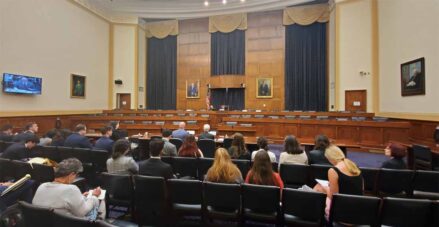First, the order lays the groundwork for why religious freedom around the world needs to be addressed and the commitment of the United States to do so. Section one, in part, reads “Religious freedom, America’s first freedom, is a moral and national security imperative. Religious freedom for all people worldwide is a foreign policy priority of the United States, and the United States will respect and vigorously promote this freedom.”
Section one goes on to highlight that civil society (this includes groups like Global Christian Relief and our partners working with the persecuted around the world) and others are “vital partners in United States Government efforts to advance religious freedom around the world. It is the policy of the United States to engage robustly and continually with civil society organizations— including those in foreign countries—to inform United States Government policies, programs and activities related to international religious freedom.”
This is great news for the many faith leaders, non-profits and others that help make the work of advancing religious freedom possible.
Even better, though, are sections two through six, where the EO goes on to create some of the strongest improvements to United States policy on international religious freedom in the past several decades.
In short, these improvements include:
-The creation of a new plan by the U.S. State Department and the U.S. Agency for International Development (USAID) to promote religious freedom in our foreign policy and foreign aid work
-$50 million a year (an unprecedented amount) in funding for advancing religious freedom, which includes programs “intended to anticipate, prevent and respond to attacks against individuals and groups on the basis of their religion”
-Ensure faith-based groups are not discriminated against in U.S. foreign assistance programs
-New “comprehensive” action plans to be developed by U.S. embassies in some of the most challenging countries for raising religious freedom
-Training on religious freedom promotion for all federal employees to be posted overseas
-The creation of new economic tools to incentivize countries to adopt religious freedom, including “increasing religious freedom programming, realigning foreign assistance to better reflect country circumstances, or restricting the issuance of visas…”
One official pointed out that the order essentially creates a “whole of government” approach to international religious freedom, ensuring that all of the numerous agencies that deploy Americans overseas must, to some degree, be knowledgeable about religious freedom conditions in the countries where they work.



